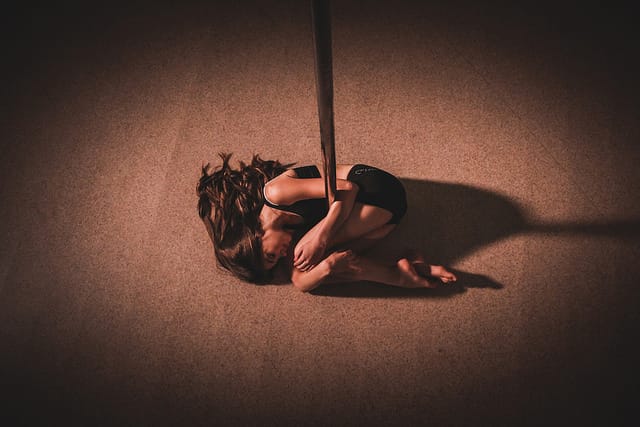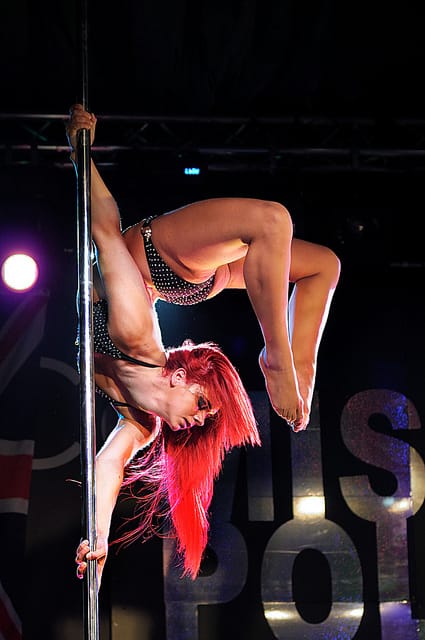How everyday attitudes shift accountability
‘I was uncomfortable with the sleaze element.’
Recently I invited a good friend to watch a pole dance and burlesque showcase at a local nightspot — an informal night of fun, where women taking dance classes dress up and perform, displaying what they have learned throughout the term. The event was open to friends and family, with some members of the public also cheering us on.
‘What do you mean by “sleaze element?”’ I asked.
‘I’m not a prude,’ my friend insisted, ‘but I didn’t like the girls walking around in skimpy outfits all night.’
I pressed further. What was it about that scenario which made my friend uncomfortable? If not prudishness, what was it?
She didn’t have a problem with the costumes while the women were performing, but said it bothered her when they were walking around the venue in their corsets and lingerie before and after, adding, ‘You covered up when you weren’t performing.’
‘I covered up because I was cold. Otherwise, I wouldn’t have bothered,’ I replied. ‘And if the women felt comfortable and confident enough to walk around in their skimpy outfits, is that a bad thing?’
‘No… but a group of men were there, leering and heckling,’ she said. ‘They were making the girls uncomfortable.’
‘So the girls should cover up because there were a few dickheads in the audience?’

You could see she wanted to say, ‘Of course not,’ but also, ‘Yes they should.’
‘We should police the women and what they wear because a bunch of guys chose to be disrespectful and behave like dicks?’
A pause. ‘It’s the mother in me, I think…’ She wanted me to understand her discomfort came from a good place, from wanting to protect.
I didn’t let up. The women were in their costumes, feeling good about themselves, confidently dressing up and displaying their art. Why is that something we should chaperone or shut down? Is it because the style of the dance was sexy? Their costumes were no skimpier than a swimsuit, and their dances no raunchier than a salsa or a tango. Is it because they were embracing a sexual style that didn’t involve a male partner? Is that why they should cover up and choose a more modest style of dance?
I have written before about society’s discomfort with anything involving sex. We dismiss, ignore, censor, minimise, and shame. Others have pointed specifically to society’s discomfort with any form of dance that involves women owning their own sexual power.
Now these debates were playing out in my kitchen.

So if the real problem wasn’t prudishness, and my friend agreed the style of dance was legitimate, the costumes appropriate, and the women free to proudly display their bodies, that left only one avenue to blame; only one group to be held accountable for the ‘sleaze element’: the dickhead guys.
They were the ones heckling, leering, and making people uncomfortable. If anyone in this scenario should modify their behaviour, it is they. We should have told the sons to knock it off and grow up, not put cardigans around the daughters and shuffled them home! We should have called the men out. Show some respect or GTFO. Yet collectively we let those men continue, whispering how those poor girls really ought to cover up, and perhaps this isn’t an appropriate style of dance after all…
To my friend’s credit, she quickly saw things from the other side: we shouldn’t police the women, what they wear or their style of dance to accommodate a few douchebags who have no manners or respect.
I just wish we had called the men out on their behaviour at the time. That is what will help women feel safe in public spaces and empower us. Calling out poor behaviour helps shift social attitudes, holding people accountable for their actions and reactions, not a kind of paternalism that shuts women down, telling us to cover up for our own good.
Our conversation felt like a small victory. More so, when a few days later my friend related a prior incident, which she now saw from a different perspective. The incident involved some of the dads at a school where she worked. The men had taken to ogling and making inappropriate remarks about a young female teacher. The situation escalated and the school principal decided the best course of action was to speak to the young teacher and ask her to modify her style of dress. No one thought the male parents’ behaviour was the problem. No one asked them to stop disrespecting a member of staff and the teacher of their children. ‘On reflection, what we should have done was talk to the dads,’ my friend said.
I did an internal happy dance.
Such a small thing, but it gives me hope our paternalistic attitudes to men and women and sex can change. It shows there is value in asking what someone really means when they say they don’t like the ‘sleaze factor’ or think someone isn’t ‘dressed appropriately’.
There are many (often unconscious) steps involved in making a judgement, and unless we examine our underlying assumptions and values, and query how we reached a particular conclusion, why A plus B equals C and not Z, we will continue to absorb the same socially constructed values, perpetuate the same social inequities, and default to the same flawed conclusions.
We should be asking, ‘What makes you uncomfortable? Whose behaviour is really the problem? Is there another way to look at this? Where does the accountability really lie?’ If we ask often enough we might see the solution isn’t to paternalistically police and smother women and girls (another form of slut-shaming), but to examine our own discomfort and shame around sex. Once we have eliminated those elements, the source of the problem becomes irrefutable and the solution clear: to demand accountability from those who fail to show females respect, and to call out disrespectful behaviour when we see it.



